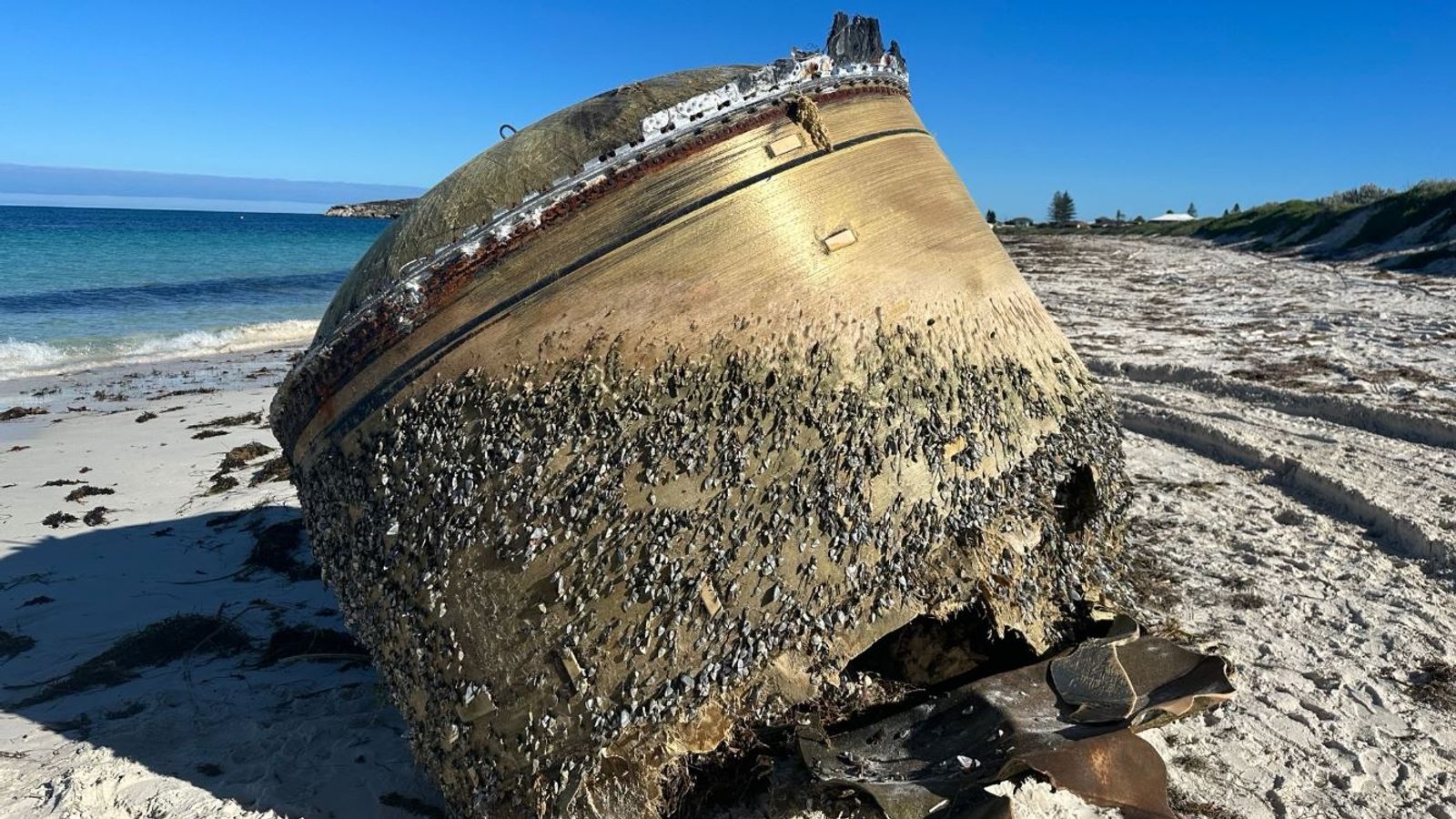
"You don't have to believe in coincidences because they happen every day. The trick is to be able to discern when something is more than coincidence."
Intelligence Fun Fact:
Intelligence Analysts' Stealthy Contributions: How They Helped Forge the Atomic Bomb during WWII
Intelligence analysts played a crucial role in the creation of the atomic bomb during World War II. The Manhattan Project, which was the top-secret research and development effort to build the first nuclear weapons, relied heavily on intelligence gathering and analysis.

Here's an overview of their contributions:
Background and Context: At the onset of World War II, it was feared that Nazi Germany might be pursuing the development of atomic weapons. Intelligence agencies, such as the Office of Strategic Services (OSS) in the United States and British intelligence, initiated efforts to gather information on Germany's nuclear program and other related research.
But what role did analysts play in the actual research, development, and execution of the single more classified program in world history?
Espionage and Informants: Intelligence analysts used various espionage methods, including human informants and spies, to gather critical information about German scientific advancements. They infiltrated German scientific communities and military research facilities to obtain insights into their progress with nuclear research.
Codebreaking: Another significant contribution came from the codebreaking efforts. Allied codebreakers, most notably at Bletchley Park in the UK, intercepted and decrypted German communications. This allowed intelligence analysts to piece together important clues about Germany's atomic research, their collaborations with other countries, and the movement of scientists and materials.
Scientific Analysis: Intelligence analysts collaborated with renowned scientists, such as Niels Bohr and Albert Einstein, who provided valuable insights into the theoretical aspects of nuclear fission and its potential for weaponization. These scientists, along with intelligence experts, assessed the potential threats posed by Germany's nuclear ambitions.
Confirmation of German Intentions: Intelligence analysts meticulously analyzed data from various sources to confirm that Germany was indeed pursuing nuclear weapons. This verification was essential to justify and prioritize the immense resources and efforts poured into the Manhattan Project.
Location of Uranium Ore Deposits: Identifying and locating uranium ore deposits were critical steps in the development of the atom bomb. Intelligence analysts played a key role in identifying potential sources of uranium in occupied territories, which later influenced military strategies to secure these locations.
Industrial and Military Intelligence: Intelligence analysts also focused on understanding Germany's industrial capabilities and military infrastructure. This information helped in assessing the feasibility of large-scale nuclear weapon production and the potential consequences of deploying such weapons.
Information Sharing with Allies: Intelligence agencies from different Allied countries collaborated closely, sharing their findings to create a comprehensive picture of Germany's nuclear efforts. This cooperation accelerated progress and minimized duplication of efforts.
As is evident, intelligence analysts played a vital role in collecting, analyzing, and interpreting information that helped the Allies understand the scale and nature of Germany's nuclear program. Their work provided critical insights that guided the development of the Manhattan Project, leading to the successful creation of the first atomic bomb and ultimately altering the course of history.
Impacts of the Border Crossing by U.S. Army Soldier

U.S. Army Pvt. Travis King crossed the border into North Korea from South Korea, making him the first American in five years to be detained by North Korean authorities. Rep. Michael McCaul (R-Texas), Chair of the House Foreign Affairs Committee, expressed concerns about King's actions and the difficulties in securing his release. King, facing disciplinary charges and legal trouble in South Korea, voluntarily crossed the border while on a civilian tour, raising questions about his intentions and complicating the negotiation process for his return.
Analyst Comments:
The crossing of the heavily fortified Korean Demilitarized Zone (DMZ) by a U.S. soldier is an extremely rare and dangerous incident. The DMZ serves as one of the most sensitive and heavily militarized borders in the world, and any unauthorized crossing is viewed as a grave violation of the armistice agreement between North and South Korea. Such actions can significantly escalate tensions between the two countries and may have broader implications for regional stability. The motives behind King's decision to cross voluntarily remain unclear, but his legal troubles in South Korea might have contributed to his desperation or confusion. However, this incident raises questions about the need for increased vigilance and preventative measures to prevent similar occurrences in the future.
Many in the U.S. have been outspoken about their concerns regarding the treatment of Pvt. Travis King by North Korean authorities. North Korea's human rights record is notorious, and detainees, especially foreigners, have faced harsh conditions and limited access to legal protections in the past. As a soldier, King's status as a captive could potentially be exploited by North Korea as leverage in negotiations, posing additional challenges to securing his release. The possibility of North Korea using King's case to advance its own political agenda or as a bargaining chip must be considered in any future negotiation attempts. Swift and decisive action from U.S. authorities, in coordination with South Korea and other international partners, will be crucial in ensuring King's safety and eventual return.
The decision to dock a nuclear-armed U.S. submarine in South Korea serves as a display of military strength and a deterrent against aggression from North Korea. Given the sensitive nature of King's situation and the broader geopolitical implications of his crossing, reinforcing the U.S. military presence in the region is understandable. However, it is vital to strike a delicate balance between projecting strength and avoiding any actions that could further escalate tensions. The presence of a nuclear-armed submarine may inadvertently provoke North Korea and result in a counter-reaction that could worsen the situation. Diplomatic efforts to engage North Korea, along with military readiness, should be pursued in a coordinated manner to prevent any unintended consequences.
The Reason Behind Kissinger’s Visit to China and the Warm Reception He Received

This past week former National Security Adviser and Secretary of State, Henry Kissinger, visited Chinese President Xi Jinping. While the Biden administration has been working to restart high-level contacts with China, the response from the Chinese leadership to other U.S. officials' visits has been lukewarm. However, Kissinger's visit was met with warmth and praise, indicating a different dynamic in the relationship between the two countries. The question remains, what were the reasons behind China's favorable reception of Kissinger? The U.S. has yet to gain a clear perspective on the motivations driving the visit of a former U.S. national security advisor and key supporter of U.S.-Chinese relations.
Analyst Comment:
China's warm reception of Henry Kissinger underscores its longing for a return to a bygone era of Sino-American engagement. Kissinger's historic visit to China in 1971 played a pivotal role in initiating diplomatic relations between the two nations. With the recent deterioration in U.S.-China relations, the Chinese leadership is attempting a nostalgia play to signal its preference for a time when the U.S. sought to open China's market to American exports. By entertaining Kissinger and praising his contributions to bilateral relations, China is implicitly suggesting that a revival of U.S. foreign policy from a decade ago could lead to improved ties. However, it remains to be seen whether such nostalgia can effectively mend the current tensions, as the political climate in Washington has significantly shifted towards viewing China as a strategic rival rather than a partner.
Henry Kissinger's motivations for the visit are rooted in maintaining his relevance and influence in the realm of great power politics. As the United States increasingly sees China as a rival, Kissinger's reputation as an influential statesperson provides him with leverage and access to world leaders. His consultancy firm, Kissinger Associates, thrives on the promise of insider knowledge and access to corridors of power, both in Washington and Beijing. Thus, it is in Kissinger's interest to resist the hawkish turn in U.S. foreign policy towards China, as it could threaten his privileged relationships and lucrative corporate support. This visit to China not only solidifies his image as an influential player in global affairs but also provides him with ample media attention and corporate support. The visit also bolsters his position in the realm of international diplomacy.
The warm reception given to Henry Kissinger during his visit to China may have had a limited impact on Sino-American relations in the broader context. Despite Chinese leadership's preference for a bygone era of peace, the political climate in the United States remains inhospitable towards China. There is bipartisan consensus viewing China as a strategic competitor. Kissinger's visit and praise from Chinese officials might evoke nostalgic sentiments and garner media attention, but they are unlikely to influence Washington's current approach towards China. The Biden administration has demonstrated a commitment to strategic competition with China. This is evident in the establishment of the Quad and Indo-Pacific Economic Framework. There is also increased support for Taiwan and export controls. Thus, while the Xi-Kissinger lovefest showcases China's desire for improved relations, it is unlikely to have a substantial impact on the current state of Sino-American relations within the Beltway.
The Current State of the Iran Nuclear Deal

This week Secretary of State Antony Blinken made candid comments about the current state of the Iran Nuclear Deal. The Iran nuclear deal, officially known as the Joint Comprehensive Plan of Action (JCPOA), was reached in 2015 but faced challenges when the Trump administration withdrew from the agreement. The Biden administration has expressed a willingness to re-engage with Iran to revive the deal with some modifications. However, as of now, direct negotiations with Iran have not resumed. U.S. officials are focusing on other avenues to address the ongoing tensions between the two nations.
Analyst Comment:
Secretary of State Antony Blinken's comments reflect the Biden administration's cautious approach toward the Iran nuclear deal. While expressing a belief in the efficacy of diplomacy to resolve the issue, the administration is not currently in talks with Iran for a new agreement. The withdrawal of the United States from the JCPOA under the Trump administration led to changes and developments in the geopolitical landscape. This makes a return to the original agreement with some modifications a complex task. Iran's actions and stance on the matter play a crucial role in the potential revival of the deal. The administration's emphasis on having any deal meet U.S. security objectives and interests indicates a readiness to seek alternative approaches if necessary.
The lack of direct negotiations on the Iran nuclear deal could indicate a stalemate in the discussions between the United States and Iran. Both sides appear to have divergent views and demands, making it challenging to find common ground for rejoining the agreement. Iran's refusal or inability to return to compliance with the JCPOA has stalled progress in re-establishing the deal. Additionally, the Biden administration faces pressure from Republican lawmakers concerned about providing sanctions relief to Iran without Congressional approval. The situation highlights the complexity of negotiating with Iran and underscores the need for alternative measures to address regional tensions and nuclear proliferation concerns.
The Biden administration's focus on pushing back on Iran and strengthening deterrence measures may be an attempt to apply pressure to bring Iran back to the negotiating table. By demonstrating a willingness to explore other options if diplomatic efforts fail, the U.S. seeks to signal its resolve in addressing Iran's nuclear program and regional activities. The emphasis on diplomacy remains central, but the administration acknowledges the existence of other potential approaches if necessary. This stance aims to strike a delicate balance between diplomatic engagement and the use of other tools at its disposal. The main tools used against Iran has been sanctions or military deterrence. These have attempted to address Iran's actions and ensure regional stability.
Interesting Articles from the Weekend

Stay safe out there



